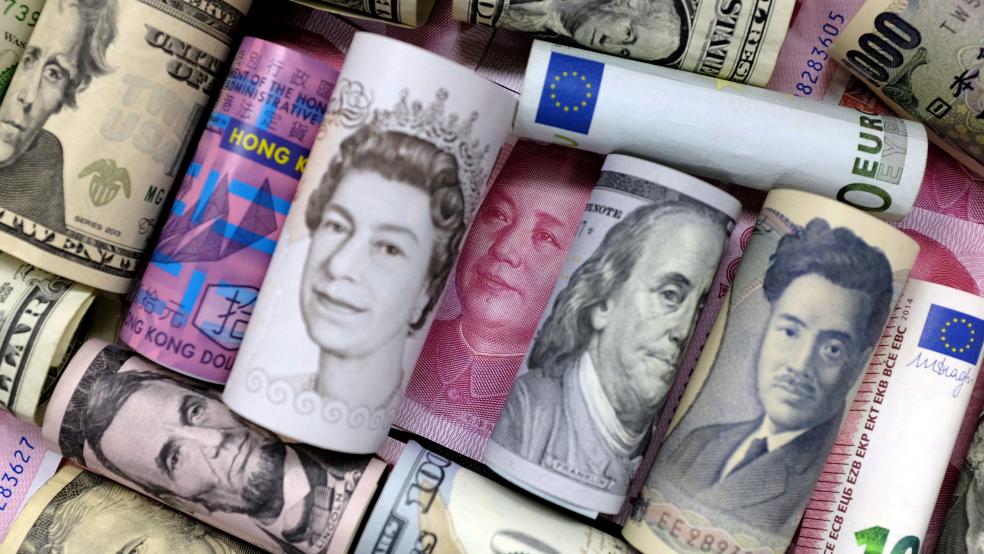NEW YORK (Reuters) - The U.S. dollar fell on Thursday as traders piled into the euro, yen, sterling and other major currencies, prompted by concerns over a possible U.S. government shutdown as lawmakers struggled to cobble together a federal budget deal.
If an agreement to fund government operations, even a temporary one, is not reached by the Friday deadline, it would compound an already negative climate for the greenback, analysts said.
"Politics are sabotaging economics," said Boris Schlossberg, managing director of FX strategy at BK Asset Management in New York. "We are going to see further pressure on the dollar if there isn't a deal."
Republican lawmakers, amid mixed signals from President Donald Trump, are scrambling to pass a temporary measure to keep the government open. A House vote on the funding extension is expected after 2:30 p.m. (1930 GMT).
At 2:44 p.m. (1944 GMT), the trade-weighted dollar index was down 0.44 percent at 90.513. It held above a three-year low of 90.104 touched on Wednesday.
The euro hovered below its three-year peak against the greenback. It was up 0.48 percent at $1.2242.
The dollar was down 0.23 percent at 111.02 yen, while the pound was up 0.45 percent at $1.3888.
The greenback reversed gains from late Wednesday after Apple Inc.
said it would make about $38 billion in one-time tax payments on its overseas cash holdings, though analysts expect the impact on currency markets is going to be limited.Meanwhile, bitcoin and other cryptocurrencies staged a modest rebound following two days of heavy losses tied to fears about regulatory clamp-down around the world.The world's biggest digital currency was last up 5.12 percent at $11,764.00 on the Luxembourg-based Bitstamp exchange.RESERVE DIVERSIFICATIONThe dollar has fallen since 2017 largely on expectations central banks besides the Federal Reserve are seeking to end their policy of ultra low, even negative, rates that they adopted to combat the 2008 global financial crisis and the recession that followed.Another factor analysts are attributing to the greenback's weakness is that global investors, including sovereign wealth funds and central banks, are looking to diversify their dollar holdings into other currencies. China and Japan, the top two foreign U.S. creditors, cut their Treasuries holdings in November according to Treasury Department data. According to a report from the International Monetary Fund released in December, central banks picked up their pace of adding non-dollar based currencies to their foreign exchange reserves in the third quarter."If you believe yields outside the U.S. are heading higher this year and next year, it is more palatable for central banks to move into euro and other currencies away from the dollar," said Paresh Upadhyaya, director of currency strategy at Amundi Pioneer Investments in Boston. (Additional reporting by Saikat Chatterjee in London; Editing by Bernadette Baum and Chizu Nomiyama)



